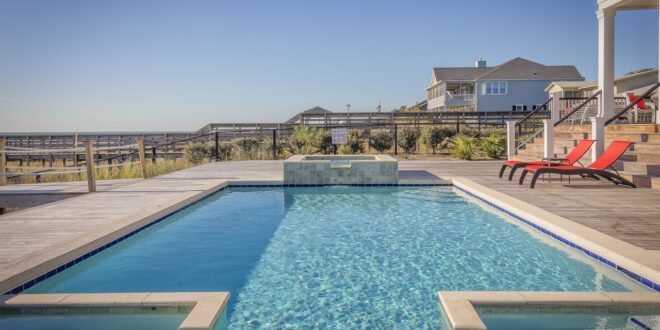There are a lot of myths associated with owning a swimming pool. Some of them are true. Others are completely false. Some are partially true. Let’s examine some popular myths associated with swimming pools.
1. Swimming pools are expensive to install and maintain.
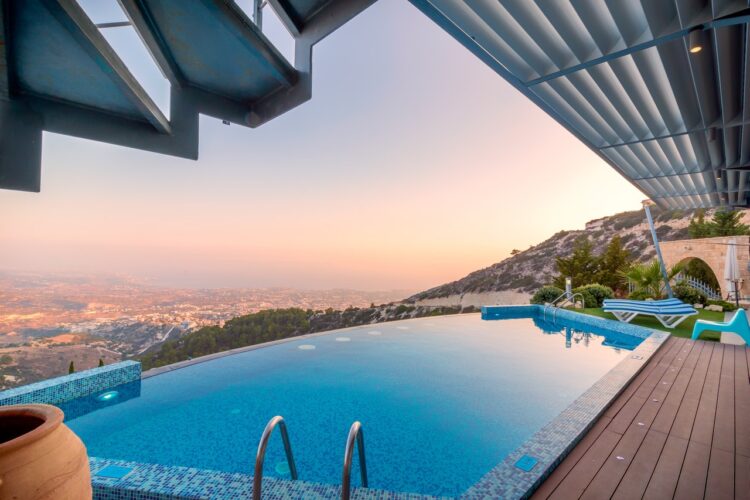
This is one of the most common myths associated with swimming pools. This myth has discouraged many people from building pools. It is true that concrete pools are expensive to install and maintain. But with the passage of time, new materials like fibreglass and vinyl are available to build swimming pools.
Fibreglass is an extremely durable and long-lasting material. Swimming Pools Cost To Run isn’t much, and it does not cost much for installation or maintenance. If planned properly then the swimming pool can be constructed within a budget. You can choose from a variety of fibreglass pools available in the online market on sites like www.thefibreglasspoolcompany.com.au.
2. Chlorine in the pool will turn your hair green.
Many people believe in this oldest myth associated with pools. Chlorine damages your hair but cannot turn it green. Chlorine can make your hair dry and brittle. Many pool owners add copper sulphate to the pool to combat algae growth. This copper attaches itself to the proteins in the hair follicle and give it a green tone. This color is more visible in blonde hair and artificially bleached hair. Pool owners can use many methods like saltwater chlorinator and Advanced Oxidation (AOP) water treatment system to reduce chlorine levels in the pool. Apart from chlorine, there may be other chemicals present in the pool. It is always better to wash your hair after a swimming session to remove the chemicals present in the pool.
3. Clear looking water is safe water.
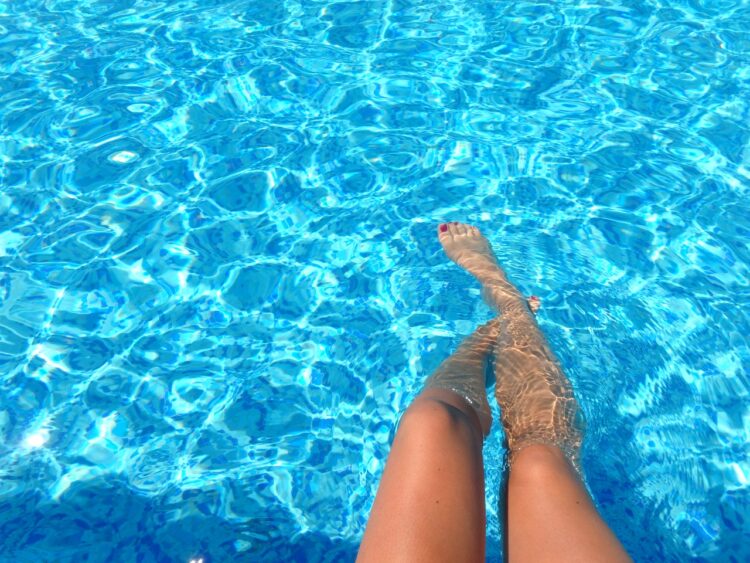
People often look at the pool water and estimate its safety and cleanliness. The popular belief is that water that looks clean is safe. This is again a myth. Water may look clean but you do not know its chemistry levels. Any imbalance in water chemistry levels can make it unsafe for the swimmers. It is necessary to examine water chemistry levels at least once a week to determine its safety. Water in concrete pools needs to be tested daily. Fibreglass does not affect water chemistry adversely. Weekly checking is sufficient for fibreglass pools.
4. You should not swim immediately after eating.
Most parents tell their children to wait for an hour after eating before they go into the pool. They believe that swimming immediately after a meal will give rise to cramps. There is no truth to this fear. During the process of digestion more blood goes into the stomach and there is less blood flow in other areas of the body. You may get a cramp if you overwork your muscles but the chances are very few. You can get a cramp during any time and during any strenuous physical activity. It is best to swim in depths that you feel comfortable with. You should always keep an eye on the children when they are in the pool.
5. If the pool water smells of chlorine than it must be clean.
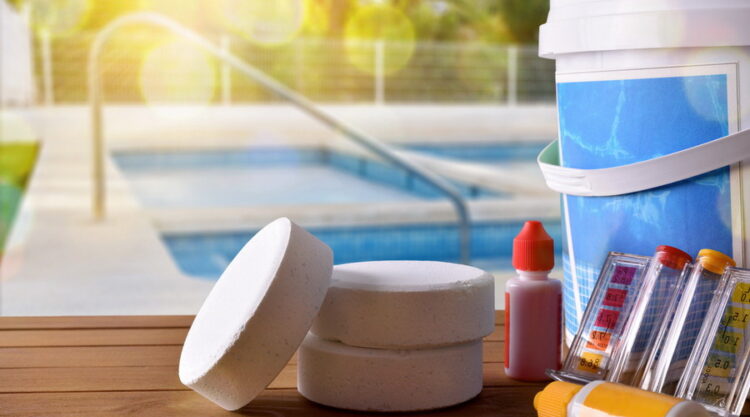
Most people believe that if they can smell chlorine in the pool then the water must be disinfected. But actually, the reverse is true. The smell that people mistakenly attribute to chlorine is not of chlorine but chloramine. Chloramine is a chemical that is created when chlorine combines with bacteria in the pool. When you get the chloramine smell it means that there are a lot of chloramines in the water. This is because chlorine is unable to do its job properly due to a large number of contaminants in the pool. This is a signal that the pool needs more chlorine.
6. The pool water will change color if you urinate in the pool.
An amazing number of people believe in this myth. This myth has also been seen in some movies. This myth is used to prevent children from peeing into the pool. There is no chemical which turns the water blue if it comes into contact with urine. Urinating in the water can make the pool unsafe by contaminating it with bacteria. But it will never make the water change its color.
7. Saltwater pools do not have chlorine.
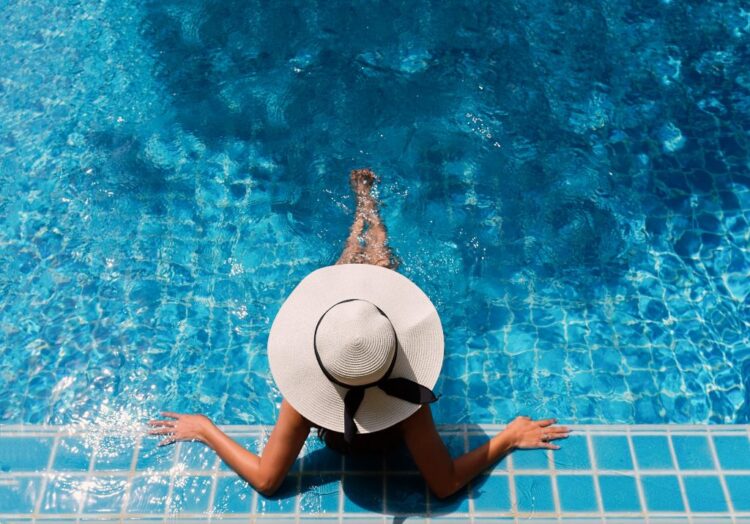
A saltwater chlorinator generates chlorine from salt. You do not have to add chlorine daily into the pool. The chlorine creation process is natural and simpler. This gives clear and soft water. Some people also believe that you don’t have to use swimming pool shock treatment with saltwater pools. Shocking your saltwater pool is essential to sanitise and prevent algae growth in the pool.
8. Chlorine will cause a burning sensation in your eyes if you open them underwater.
Chlorine has been accused of too many things. The stinging sensation happens due to imbalance in the pH level of water. Your eyes can also sting due to contaminants in the water. This happens when the chlorine level in water is not sufficient to destroy the bacteria.
9. Maintaining a pool is hard work.
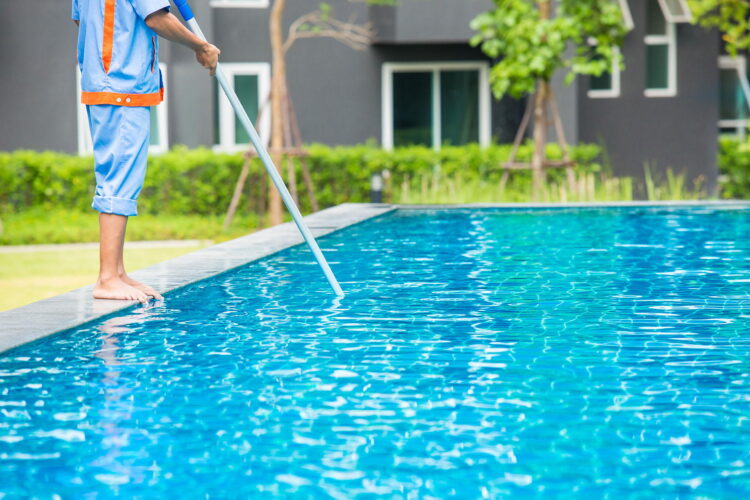
This depends on the type of pool you have. Concrete pools are difficult to maintain. They need rigorous scrubbing and harsh chemicals. Maintaining fibreglass pools is comparatively easier. Fibreglass pools do not attract dirt and algae-like concrete pools. There are various types of automatic cleaners and robotic cleaners which make pool cleaning easier.
10. You can swallow swimming pool water since its disinfected.
People think that since swimming pool water is disinfected, then it can be safely swallowed. But it is not true. There are various contaminants like sweat, makeup and oils in swimming pool water which may not be disinfected. Swallowing swimming pool water may cause stomach upsets.
11. Pool chemistry is not affected by rainwater.
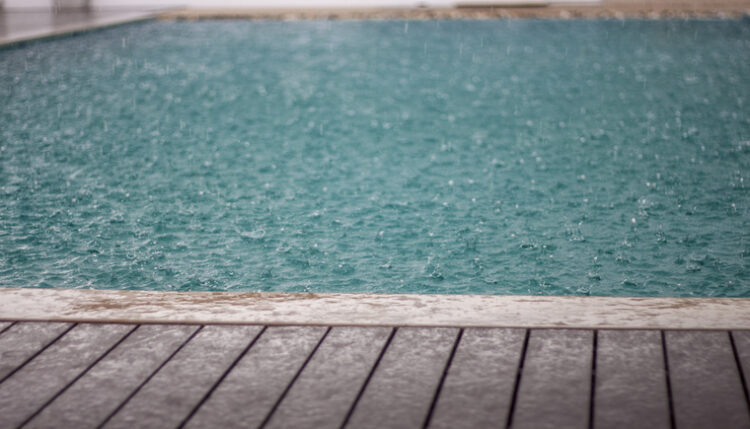
People mistakenly believe that rainwater will not change pool chemistry. Rainwater impacts the pool’s pH and alkalinity. It also affects the balance of chemicals in the pool. The pool can turn cloudy and green after rains.
Talk to your pool builders to clarify your doubts about pools. Myths should not stop you from enjoying swimming pools.
 Hi Boox Popular Magazine 2024
Hi Boox Popular Magazine 2024
